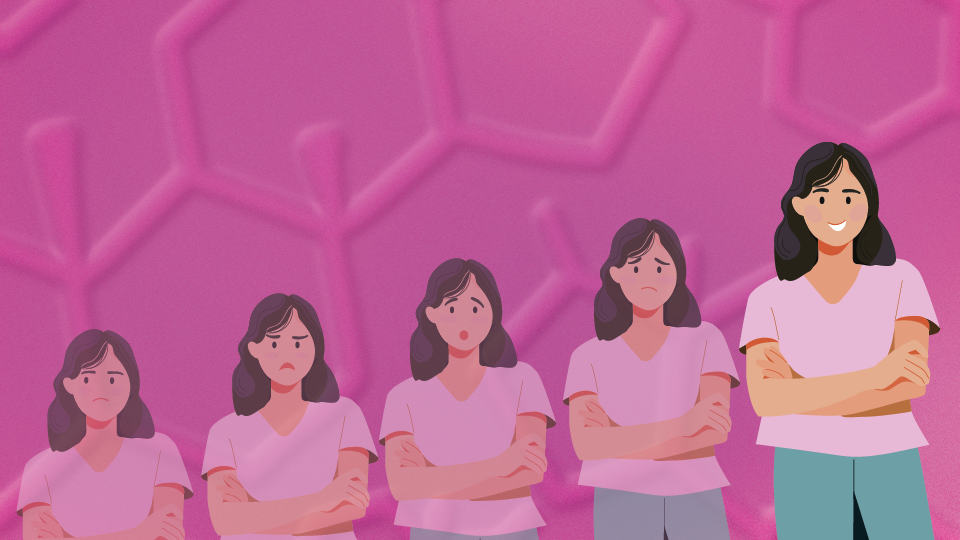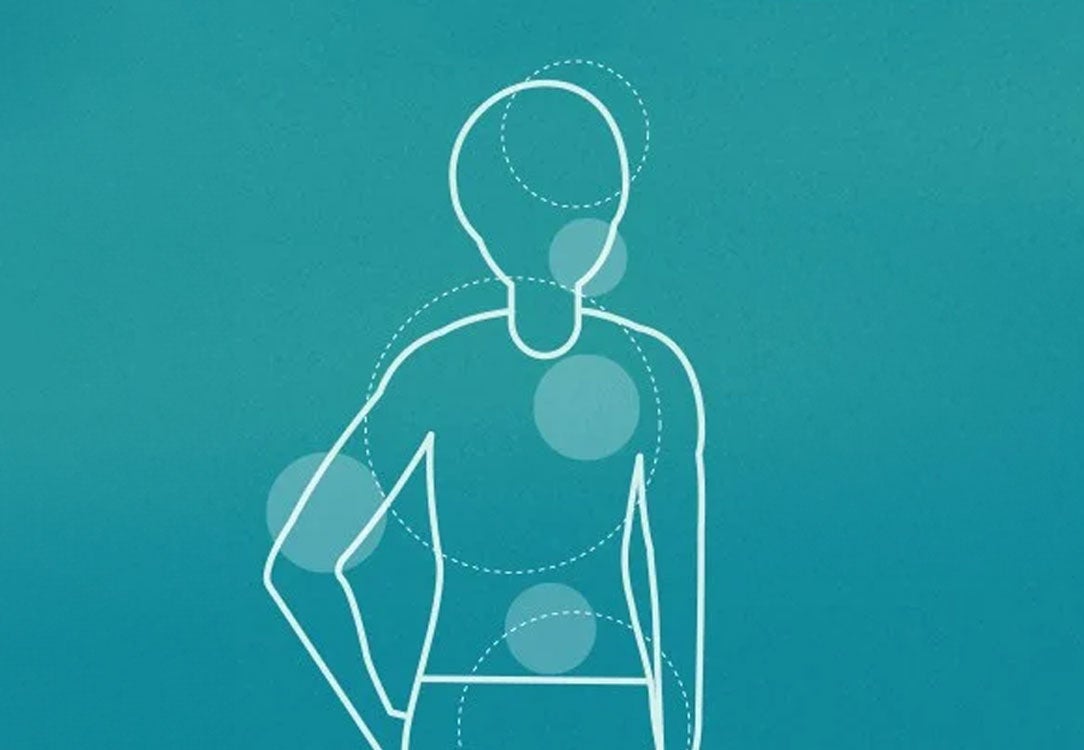By now, you realize that menopause changes your body in many ways. However, one change that you might not expect is menopause and dental health. From hormones and gum recession to menopause sensitivity to menopause gingivitis and so on, menopause mouth issues are something you should expect.
Menopause signifies a significant change in women's hormones, making you more susceptible to conditions affecting your oral health, such as dry mouth, gum recession, tooth pain, gum disease, and more. In this article, we learn about what to expect regarding menopause and gum disease, what's typical regarding menopause and teeth issues, and when to see a dentist about problems that arise with menopause and oral health. To learn more about women's oral health during different life stages, read our blog on Women's Oral Health at all Life Stages.
Why Does Menopause Impact Your Oral Health?
Symptoms of Menopause in Your Mouth
A common side effect of changing hormones during menopause is dry mouth, or what dental professionals call xerostomia. Menopause and dry mouth are associated with decreases in estrogen and progesterone, leading to your mouth not producing enough saliva. In other words, when you feel like your mouth is full of cotton, a decrease in female sex hormones is why.
Different Oral Health Changes During Menopause
What You Can Do About Menopause and Oral Health
- Brushing twice a day, once during the day and once at night, for at least two minutes with fluoride toothpaste.
- Reducing the consumption of sugar and sugary food and drinks
- Flossing or cleaning between teeth daily
- Using a fluoride rinse after brushing and flossing once a day
- Seeing your dental team at least once every six months for a check-up
When to See a Dentist
Moreover, gum recession is an indication of bone loss, which is to be expected by the decrease in estrogen you experience at this time. When you lose bone in your jaw, it can lead to serious conditions, like advanced gum disease, called periodontitis. Untreated periodontitis can result in tooth loss.[xii] In fact, a 2010 study out of the University of Buffalo suggests that nearly 30 percent of women will experience tooth loss within five years of menopause. Furthermore, research suggests that women with diabetes or a high BMI (Body Mass Index) are at an even higher risk of tooth loss, as were smokers and women with a history of gum disease and tooth loss.[xiii]
Seeing your dentist will allow them to take an X-ray and assess the progress of your condition. Then, your dental team will work with you to ensure that you get enough calcium and vitamin D to prevent further bone loss and treat the disease responsible for it. They will also likely advise you to drop unhealthy lifestyle factors, like smoking and heavy alcohol use. [xiv]
Menopause causes significant changes in your hormone levels that affect your health in many ways, including detriments to your oral health. From bleeding gums from hormones and gum recession to menopause sensitivity to other menopause mouth problems, like gum disease and tooth loss, there are many relationships between menopause and dental health. Therefore, in addition to maintaining excellent home care, you must talk to your dental team about any changes in your mouth. Discussing your menopause mouth symptoms with your dentist or hygienist can help you improve your quality of life as you experience the change in life that menopause signifies.
Find your trusted, local dentist today!
Sources
[i] Dutt P, Chaudhary S, Kumar P. Oral health and menopause: a comprehensive review on current knowledge and associated dental management. Ann Med Health Sci Res. 2013;3(3):320-323. doi:10.4103/2141-9248.117926
[ii] Suri V, Suri V. Menopause and oral health. J Midlife Health. 2014;5(3):115-120. doi:10.4103/0976-7800.141187
[iii] Dahiya P, Kamal R, Kumar M, Niti, Gupta R, Chaudhary K. Burning mouth syndrome and menopause. Int J Prev Med. 2013;4(1):15-20.
[iv] Orenstein B, Sanjai Sinha M. Surprising Menopause Symptoms. EverydayHealth.com. https://www.everydayhealth.com/menopause-pictures/menopause-symptoms-that-may-surprise-you.aspx. Published 2021. Accessed January 18, 2022.
[v] Taga, T., Ito, K., Takamatsu, K. et al. Menopausal symptoms are associated with oral sensory complaints in perimenopausal women: an observational study. BMC Women's Health 21, 262 (2021). https://doi.org/10.1186/s12905-021-01401-6
[vi] Suri V, Suri V. Menopause and oral health. J Midlife Health. 2014;5(3):115-120. doi:10.4103/0976-7800.141187
[vii] Dutt P, Chaudhary S, Kumar P. Oral health and menopause: a comprehensive review on current knowledge and associated dental management. Ann Med Health Sci Res. 2013;3(3):320-323. doi:10.4103/2141-9248.117926
[viii] Dutt P, Chaudhary S, Kumar P. Oral health and menopause: a comprehensive review on current knowledge and associated dental management. Ann Med Health Sci Res. 2013;3(3):320-323. doi:10.4103/2141-9248.117926
[ix] Bad Taste in Mouth: Causes, Treatment, and Prevention. Healthline. https://www.healthline.com/health/bad-taste-in-mouth#gi-issues. Accessed January 18, 2022.
[x] The Link Between Hormones and Dry Mouth. Colgate.com. https://www.ncbi.nlm.nih.gov/pmc/articles/PMC3793432/pdf/AMHSR-3-320.pdf. Published 2022. Accessed January 17, 2022.
[xi] Women's Hormones and Dental Health - American Dental Association. Mouthhealthy.org. https://www.mouthhealthy.org/en/az-topics/h/hormones. Accessed January 18, 2022.
[xii] Women's Hormones and Dental Health - American Dental Association. Mouthhealthy.org. https://www.mouthhealthy.org/en/az-topics/h/hormones. Accessed January 18, 2022.
[xiii] Bole C, Wactawski-Wende J, Hovey KM, Genco RJ, Hausmann E. Clinical and community risk models of incident tooth loss in postmenopausal women from the Buffalo Osteo Perio Study. Community Dent Oral Epidemiol. 2010;38(6):487-497. doi:10.1111/j.1600-0528.2010.00555.x
[xiv] Women's Hormones and Dental Health - American Dental Association. Mouthhealthy.org. https://www.mouthhealthy.org/en/az-topics/h/hormones. Accessed January 18, 2022.
Smile Generation blog articles are reviewed by a licensed dental professional before publishing. However, we present this information for educational purposes only with the intent to promote readers’ understanding of oral health and oral healthcare treatment options and technology. We do not intend for our blog content to substitute for professional dental care and clinical advice, diagnosis, or treatment planning provided by a licensed dental professional. Smile Generation always recommends seeking the advice of a dentist, physician, or other licensed healthcare professional for a dental or medical condition or treatment.








